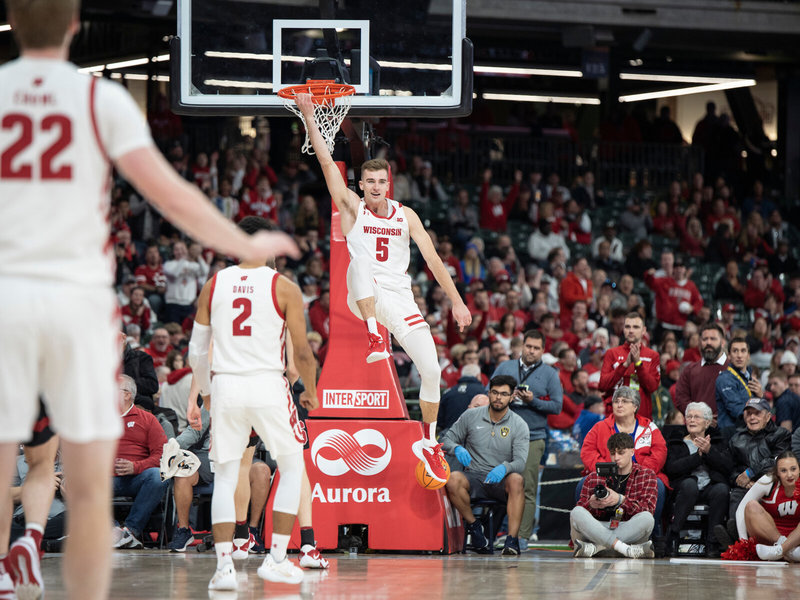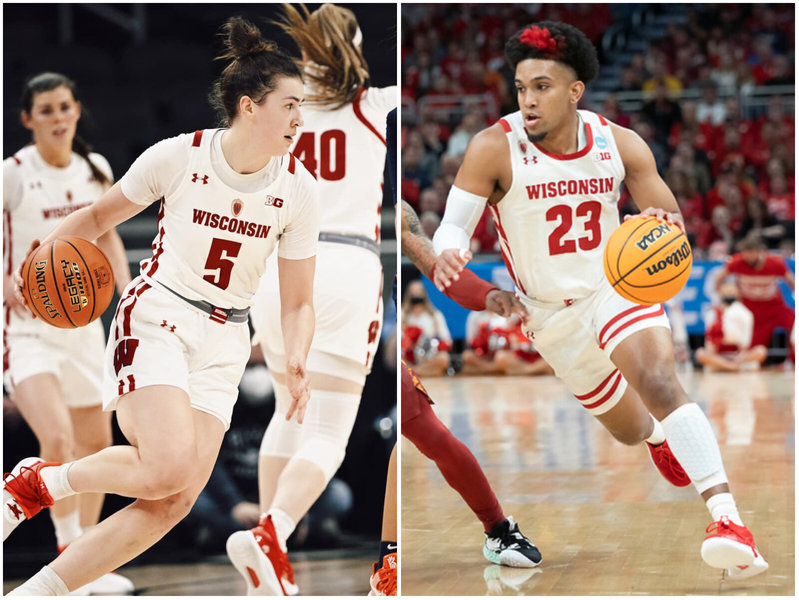Barry Alvarez has turned in one of his finest coaching jobs in his 16th season at the helm of the Wisconsin Badgers. While blessed with abundant offensive talent, Alvarez lacked the type of quality defensive unit that he often fielded in Madison. Additionally, the defensive line -- a strength of the 2004 team -- was ravaged by both graduation and injuries, bringing down the effectiveness of the entire defense with it.
The 9-3 regular season finish, therefore, was a pretty good one -- despite the frustrating home loss to Iowa to close the Big 10 season. Alvarez contended for the Big 10 title with a team that was picked to win 6-8 games, even though it was overmatched by Penn State in the biggest game of the season.
Despite all that, I'm afraid Alvarez's tenure will end poorly on Jan. 2 in Orlando. The Badgers are set to face Auburn in the Capital One Bowl, and it would take one of the team's best efforts under Alvarez to send him to his full-time Athletic Director's chair with a win.
This Auburn team isn't quite as formidable as the gang that challenged for the national title last year and sent running backs Carnell Williams and Ronnie Brown to the NFL (as well as quarterback Jason Campbell and cornerback Carlos Rogers), but the 9-2 Tigers are still darn good. And most unfortunate for UW and its traveling fans, the Tigers had the best statistical offense in the Southeastern Conference.
Auburn averages 437 yards and 34 points per game, both tops in the 12-team SEC. It did so behind junior RB Kenny Irons and sophomore QB Brandon Cox, both starting for the first time in 2005. Irons paced the SEC with 1,205 rushing yards and 13 rushing TDs, while Cox finished second to talented Georgia QB D.J. Shockley with a passer rating of 138.4. Cox has thrown 14 TDs versus just 7 interceptions. Both operate behind offensive tackle Marcus McNeill, an Outland Trophy finalist, four-year starter and likely NFL star.
Granted, the SEC is "down" a bit this year from its normal pigskin dominance. For the first time in a long time, no SEC team seriously figured in national title consideration in the last few weeks of the season. And typical powers Florida (8-3) and Tennessee (5-6) are not as scary usual.
But the Tigers could be the best team in what is still a very impressive league. While Georgia defeated No. 3 LSU for the SEC title this weekend, Auburn split with those teams in the regular season, defeating Georgia, 31-30, in Athens and falling to LSU, 20-17, in overtime in Baton Rouge. In the traditional Iron Bowl game with Alabama in November, the Tigers smothered the Tide, 28-18, sacking QB Brodie Croyle 11 times in the process.
As suggested by that last stat, Auburn's defense isn't bad, either. The Tigers surrendered just 160 points on the year (compared to 299 given up by UW) and led the conference with 36 sacks. As a reminder, a 7-5 Auburn team used relentless pressure on Badgers QB Jim Sorgi in the 2003 Music City Bowl to register 6 sacks and pave the way to a 28-14 victory.
Auburn's defense isn't as impressive as last year's unit, which led the nation in scoring defense, but it is a very good group. Tommy Tuberville's team is balanced defensively, ranking 6th in the SEC versus the pass (allowing 189.7 ypg) and 5th versus the run (104.4 ypg, 3.2 ypc). Those rankings may sound modest, but that's really a testament to the type of defensive league the SEC is. For comparison's sake, a Penn State defense that ate UW's offensive line alive last month allows 207.5 yards passing and 99.1 rushing -- just over 10 ypg more than Auburn.
Auburn's most notable defender is junior defensive end Stanley McClover, who registered 6 sacks and 12.5 tackles for loss on the year. At 6-3, 260, McClover is reminiscent of former UW defensive star Erasmus James and should excel in his senior year. Senior linebacker Travis Williams is the heart of the defense and will be chasing down Brian Calhoun all day in Orlando.
Are the Badgers incapable of beating Auburn? Certainly not. The Tigers lost at home to a good but far from dazzling Georgia Tech team, 23-14, though that was on Sept. 3. And Auburn isn't a ball-hawking team; while the Badgers led the Big 10 with a +12 turnover margin, Auburn was just 7th in the SEC at -2. It will be key, as always, for the Badgers to avoid the big mistake as well as to create them in the other team -- wins over Michigan and Minnesota would have been losses without UW's takeaways.
Another positive for the Badgers: Auburn runs a basic and balanced offense (the Tigers averaged 222.9 ypg passing and 202.7 ypg running). Film study over the next month may encourage the Tigers to add a few wrinkles to their playbook, but Tuberville generally keeps things simple. We aren't likely to see a lot of misdirection plays and spread formations from the Tigers, both of which have given the Badgers fits.
Can the Badgers score enough points to overcome their listing defense against a well-balanced Auburn team? Here's one key factor that could make the difference: Auburn led the SEC in third-down conversions at 47.9 percent. If UW can limit that number to around 30-35 percent -- and avoid killer turnovers -- the Badgers might just send Alvarez out with one of his most memorable victories yet. But if the Tigers are successful on third down, it'll be a second consecutive January loss for the Badgers.
Sports shots columnist Tim Gutowski was born in a hospital in West Allis and his sporting heart never really left. He grew up in a tiny town 30 miles west of the city named Genesee and was in attendance at County Stadium the day the Brewers clinched the 1981 second-half AL East crown. I bet you can't say that.
Though Tim moved away from Wisconsin (to Iowa and eventually the suburbs of Chicago) as a 10-year-old, he eventually found his way back to Milwaukee. He remembers fondly the pre-Web days of listenting to static-filled Brewers games on AM 620 and crying after repeated Bears' victories over the Packers.





